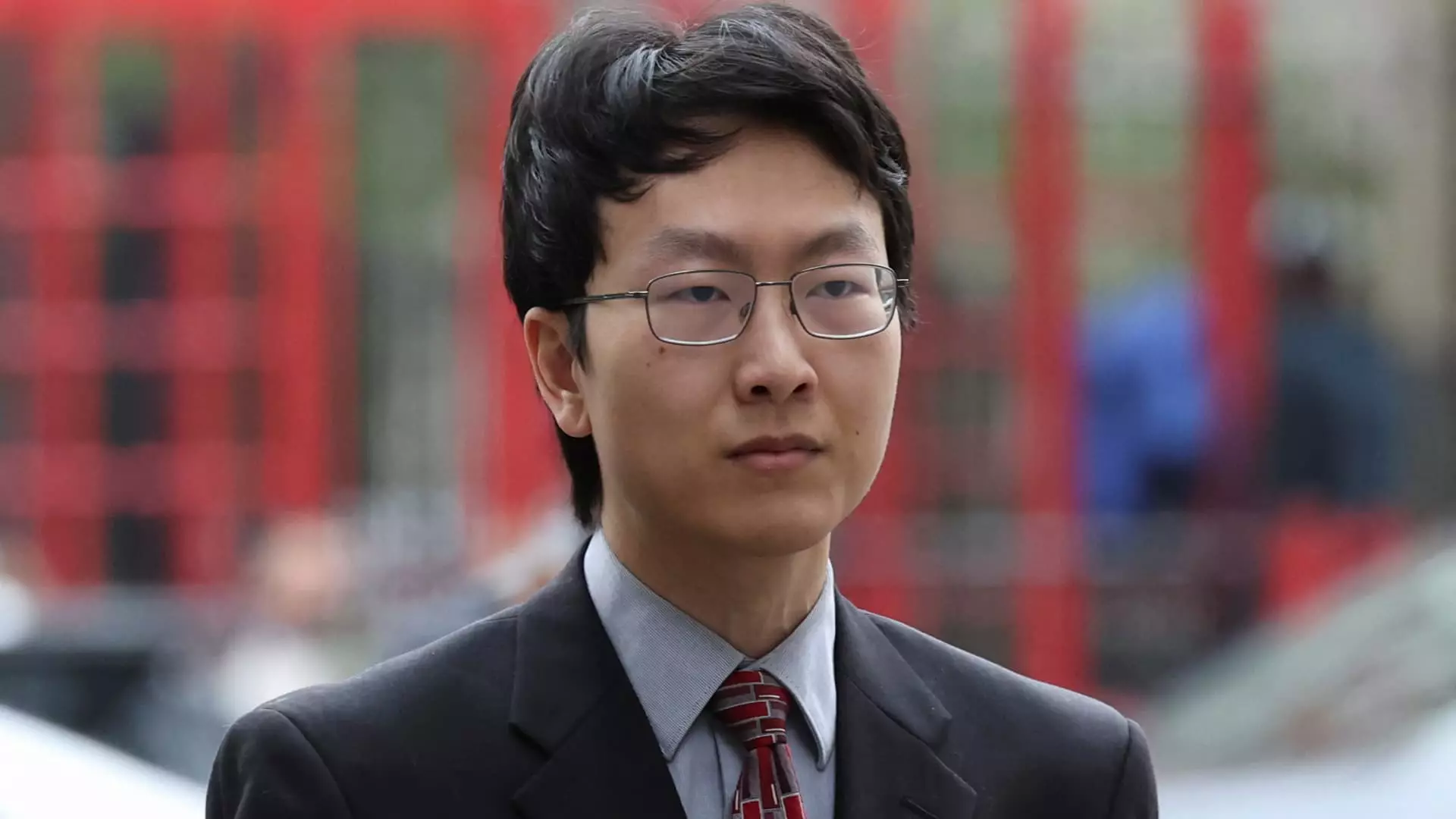In the aftermath of the catastrophic collapse of FTX, a pioneering crypto exchange, the sentencing of key figures has sparked significant discussion about accountability, ethics, and the complexities of the modern financial world. Gary Wang, a former technology chief and co-founder of FTX, has recently found himself at the epicenter of this discourse. His sentencing to time served along with three years of supervised release encapsulates the intricate narratives of compliance and guilt that come into play when financial enterprises implode under scrutiny.
Wang’s journey through the legal system illustrates both the pitfalls of ambition and the harsh realities of criminal accountability in high-stakes environments. Facing a potential maximum sentence of 50 years, Wang ultimately received a comparatively lenient punishment through guilty pleas on four counts involving conspiracy and fraud. His plea deal reflects a broader trend where cooperation with authorities is often a significant factor in determining sentencing outcomes. Notably, he took the stand during the trial against Sam Bankman-Fried, the infamous former CEO of FTX, a move that required immense courage yet also revealed complex motivations that may have included self-preservation.
The courtroom drama was not solely about Wang’s transgressions; it was deeply enmeshed in the narrative of redemption and the hope of making amends. His remorseful statements resonated with many, particularly as he confessed to choosing the “easy path” in a moment of moral failing. Wang’s commitment to atone for his actions is framed within the larger narrative of corporate accountability, emphasizing the importance of ethical conduct in leadership roles.
Familial Support and Personal Consequences
Perhaps the most poignant moments of the sentencing hearing were underscored by the presence of Wang’s family, who were there to offer their support during such a tumultuous time. The emotional weight of such moments cannot be overstated; they served as a visceral reminder of the personal stakes involved in corporate misadventures. Wang’s wife, pregnant with their first child, is emblematic of the collateral damage incurred from corporate malfeasance. As investors lost millions and employees were blindsided by the fallout, Wang’s personal life, like many others entangled in FTX’s downfall, faced irrevocable changes.
Wang’s defense presented an intriguing argument: he lacked an understanding of the full scope of FTX’s dark dealings, suggesting a disconnect between technological implementation and executive decision-making. This raises critical questions about the responsibilities of individuals within large organizations and their awareness—or ignorance—of unethical practices unfolding under their watch.
Wang’s cooperation with the prosecution was lauded by Assistant U.S. Attorney Nicolas Roos, who described him as a highly effective witness. He was credited with demystifying the complex coding that enabled the misappropriation of customer funds, an area requiring considerable technical expertise. This raises essential points about the justice system’s reliance on insider knowledge and technical proficiency in prosecuting financial crimes. Wang’s subsequent work on tools to detect fraud in the stock and cryptocurrency markets illustrates a tangible way in which he has sought to leverage his skills for the greater good, transforming a dark chapter into a potential source of enlightenment for future regulatory efforts.
As we move forward in an increasingly interconnected and digital financial landscape, the saga of Gary Wang and the fall of FTX serves as a sobering reminder of the fragilities embedded in the worlds of finance and technology. Accountability remains paramount, yet it is intricately linked to human factors—decisions, ethical considerations, and the consequences of corporate actions on individuals and society as a whole. Wang’s story encapsulates both tragedy and opportunity, calling for deeper introspection on the ethics of leadership and the responsibilities that come with great power. As the dust settles on this scandal, stakeholders across industries must grapple with the lessons learned and strive not to repeat the mistakes of the past.

